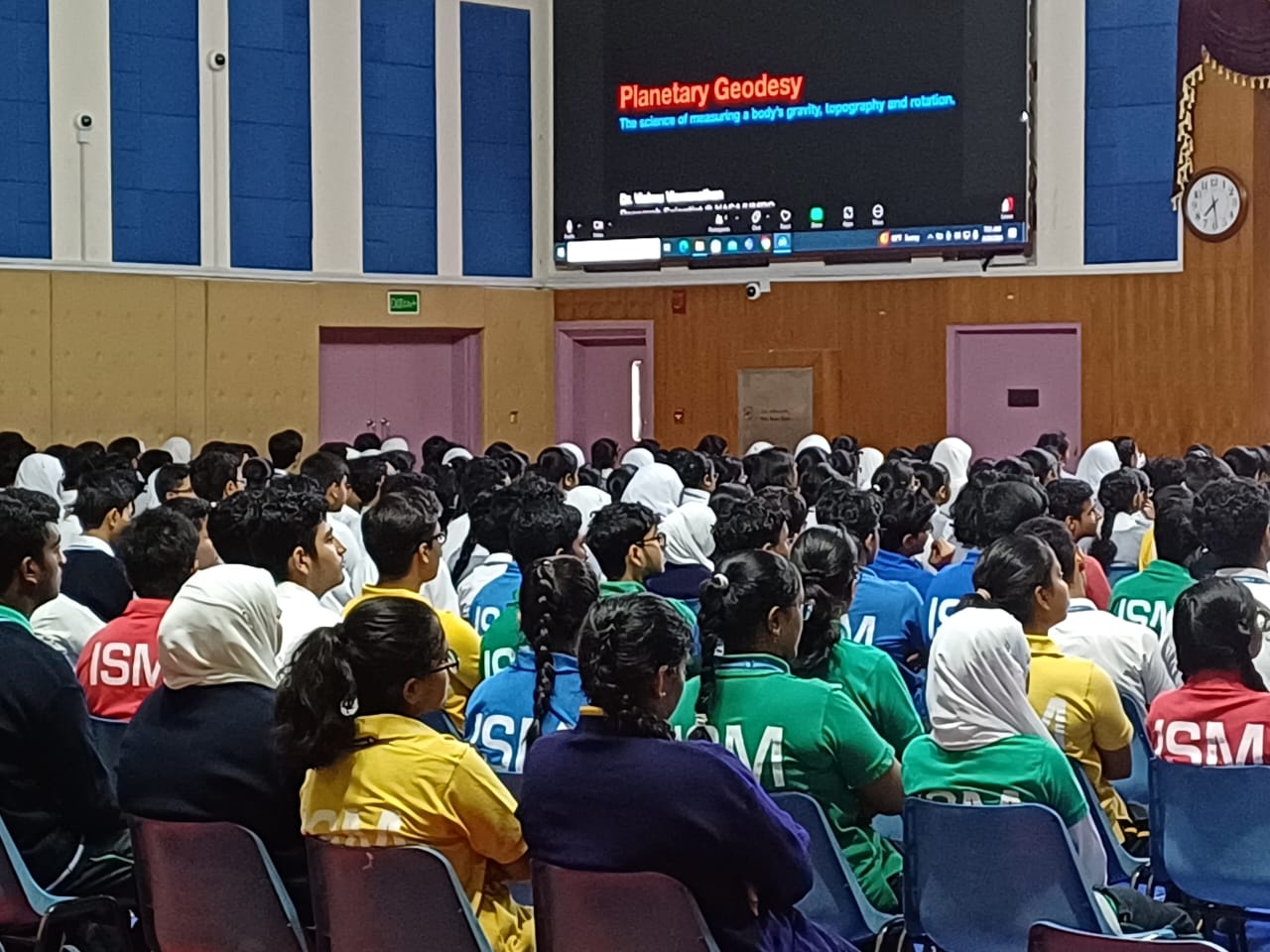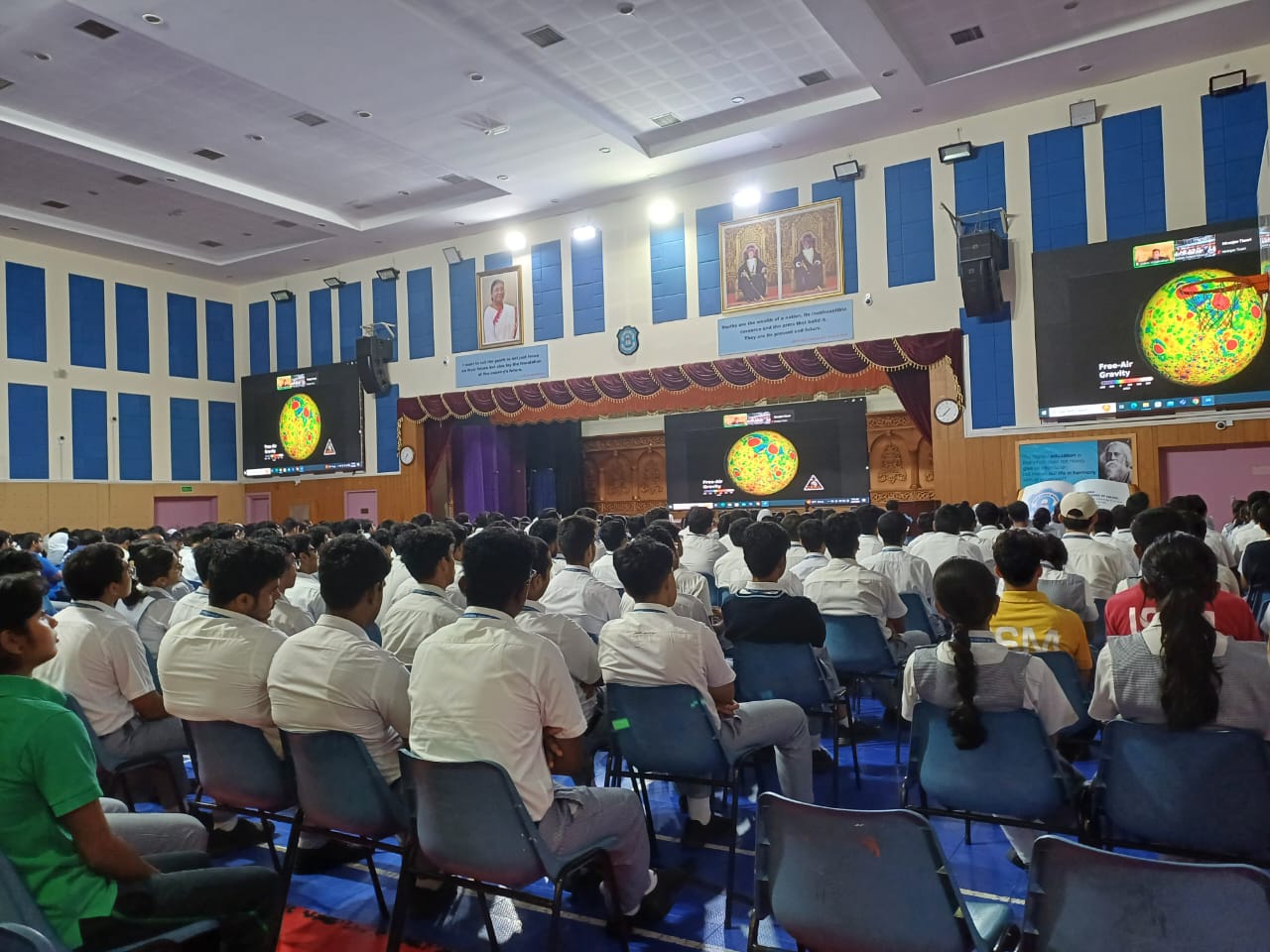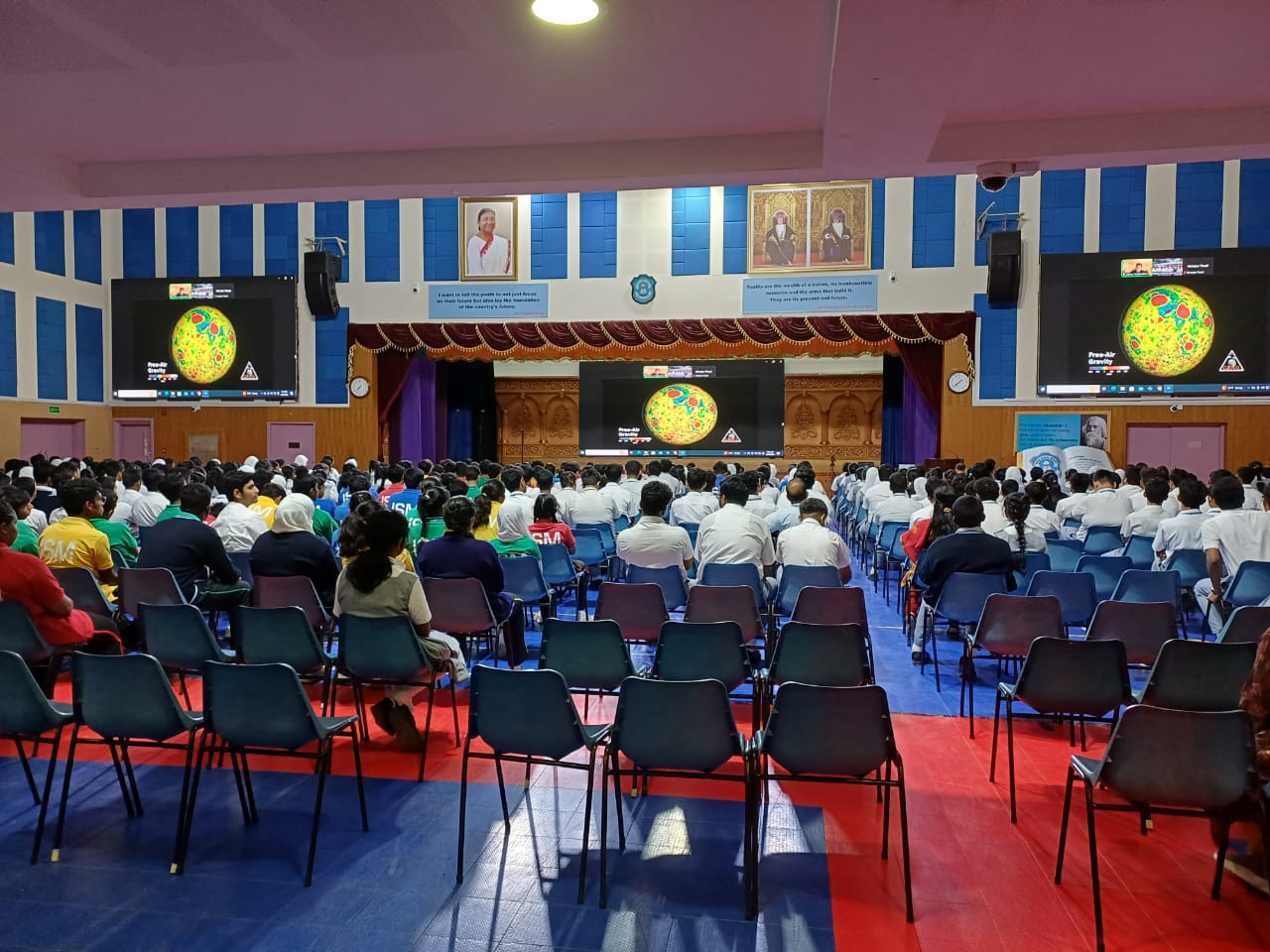On 20th August, 2024, Indian School Muscat had the privilege of hosting Dr. Vishnu Viswanathan, a research scientist at NASA’s Goddard Space Flight Center, who virtually connected to deliver an insightful session to the students. His presentation focused on a range of space-related topics, particularly in the field of planetary geodesy and lunar studies.
Dr. Viswanathan began by discussing planetary geodesy, elaborating on how gravity impacts planetary bodies. He introduced NASA's Lunar Reconnaissance Orbiter (LRO), a satellite that orbits the Moon, and the GRAIL mission, which utilizes two satellites to detect variations in the Moon's gravitational field and maintain stability. He further explained how topographical features of the Moon, such as craters and impact regions, are mapped using laser beams. By measuring the time taken for these beams to reflect off the lunar surface, researchers can estimate the depth and characteristics of these regions.

Dr. Viswanathan also highlighted the use of reflectors placed on the Moon during the Apollo missions, as well as the reflector placed by the Lunokhod rover, both of which help scientists measure the Moon's rotation and other features. His passion for lunar rotation, a core area of his expertise, was clear as he captivated the students with his in-depth explanation.
The assembly concluded with an engaging Q&A session, where students eagerly participated. Dr. Vishnu Viswanathan's presentation not only broadened students' understanding of space exploration but also motivated them to explore diverse career paths and strive for excellence in their future endeavors.

